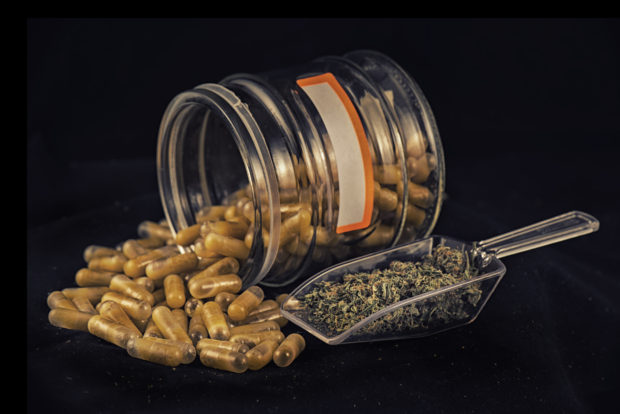 As more states have legalized recreational marijuana, the edibles market has seen a surge. But the choice by many manufacturers to market their products as candy look-alikes has opened the door for intellectual property lawsuits—and puts young children at greater risk of accidental ingestion.
As more states have legalized recreational marijuana, the edibles market has seen a surge. But the choice by many manufacturers to market their products as candy look-alikes has opened the door for intellectual property lawsuits—and puts young children at greater risk of accidental ingestion.
The Wm. Wrigley Jr. Company, owned by candy giant Mars Inc., filed a lawsuit in May against five companies for selling cannabis-infused edibles designed to look like Skittles, Starburst and Life Savers. Though the suit focuses on intellectual property rights, the plaintiffs also argue that the copycat products could lead people to mistakenly ingest drugs—particularly young children.
Similar lawsuits have previously been brought by the Hershey Company (against TinctureBelle for products resembling Reese’s Peanut Butter Cups, Heath bars, Almond Joy bars and York Peppermint Patties), Mondelez International (against a company selling Stoney Patch Kids) and Ferrara Candy Company (against a store selling Medicated Nerds Rope). These lawsuits have all been settled, with the smaller companies agreeing to halt production and sales of those products.
When it comes to candy, intellectual property protections can apply to name, shape of the candy, packaging, as well as patent protections for the recipes, according to an intellectual property lawyer who spoke to the Times.
Poison control centers have observed an increase in accidental ingestion of edibles by children, and public health officials worry this will only get worse unless proper regulation is put in place. For example, there were 122 cases of exposure to THC for children under 5 in Washington State in the first nine months of 2020 compared to 85 for the same time period in 2019. The most common side effects reported included vomiting, lethargy and chest pain.
Source: “Big Candy Is Angry,” New York Times, May 22, 2021





















 Large Scale Cargo Ring Busted in LA, $5M Recovered
Large Scale Cargo Ring Busted in LA, $5M Recovered  Reinsurance Program Could Wipe Out Need for Calif. FAIR Plan: Legal Exec
Reinsurance Program Could Wipe Out Need for Calif. FAIR Plan: Legal Exec  From Skill to System: The Next Chapter in Insurance Claims Negotiation
From Skill to System: The Next Chapter in Insurance Claims Negotiation  Machine Learning for Mutuals: What’s Working, What’s Not, and What’s Next
Machine Learning for Mutuals: What’s Working, What’s Not, and What’s Next 






